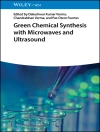Over the last three decades the importance of organosilicon
chemistry has greatly increased because it has opened a number of
new synthetic strategies. Silicon reagents are usually low-cost,
versatile and allow a wide range of reactions. This is the first
Handbook to compile essential Silicon containing reagents and makes
use of the leading reagent database e-EROS. Another hot
volume in the series Handbooks of Reagents for Organic
Synthesis, this is a must-have resource for all synthetic
chemists working in drug development and medicinal chemistry.
For the selection the Editor focussed on three key synthetic
approaches with the greatest impact:
1. Use of silicon as a ‘temporary tether’ by unifying a reactive
pair of functional groups and taking advantage of their
template-biased intramolecular cyclization.
2. The specific use of the silane functionality as a hetero
t-butyl group, often colloquially referred to as the use of
silicon as a ‘fat proton’.
3. The use of the Brook rearrangement as an ‘anion relay
stratagem’.
A new feature in this Handbook is the reagent finder, an
alphabetically organized lookup table arranged by organic
functionality and specific structure of the silicon atom to which
it is bound.
A propos de l’auteur
Philip Fuchs began his career at Purdue in 1973. Since that time, he has graduated an extended family of 55 Ph.D.s. His awards and honors include an Eli Lilly young faculty fellowship (1975), an Alfred P. Sloan fellowship (1977), a Pioneer in Laboratory Robotics award (1986), a Martin teaching award (1991), and being voted by the students as one of Top 10 Teachers in School of Science at Purdue (1991, 1993, 1995, 1996).
Fuchs has consulted for Pfizer, and Eli Lilly, served on the editorial board of The Journal of Organic Chemistry, and is currently an executive editor for the Electronic Encyclopedia of Organic Reagents (e-EROS), an online dynamic encyclopedia published by John Wiley & Sons.











